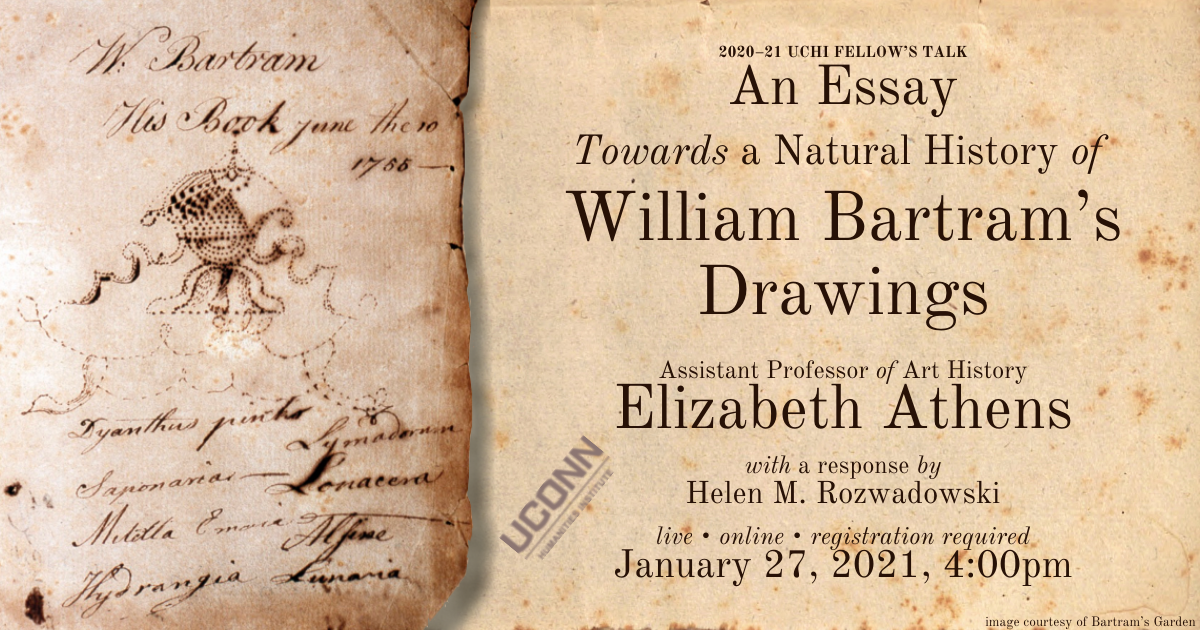An Essay Towards a Natural History of William Bartram’s Drawings
Elizabeth Athens (Assistant Professor of Art History)
with a response by Helen M. Rozwadowski (Professor of History, UConn)
Wednesday, January 27, 2021, 4:00pm (Online—Register here)
The act of drawing or “figuring” provided the American naturalist William Bartram (1739–1823) a model for understanding the natural world. Bartram saw figuring as a series of reciprocal interactions among natural world, artist, and audience, a view that coincided with his belief in a dynamic, responsive cosmos. Though the term ecology is of nineteenth-century origin, the study of the natural world’s relationships emerges in the eighteenth, and this presentation examines the affinity between Bartram’s graphic work and an interconnected natural world. In particular it considers how his drawings—by calling attention to their construction through visual quotations, jostling perspectives, and unusual flourishes—presented a new mode of natural history representation, one in which they function as extensions of the natural world’s own organic processes and patterns.
Elizabeth Athens is Assistant Professor of Art History at the University of Connecticut, where she teaches courses on museum studies, histories of collecting, and material culture. She previously served as part of the research team for the History of Early American Landscape Design database at the Center for Advanced Study in the Visual Arts in Washington, D.C., and as the American art curator of the Worcester Art Museum. Her current research centers on the work of the American artist-naturalist William Bartram (1739–1823), whose efforts helped redirect the taxonomic focus of eighteenth-century natural history to the study of lived relationships. This project examines Bartram’s unusual graphic practice and how his natural history drawings helped articulate such a shift.
Founder of the University of Connecticut’s Maritime Studies program, Helen M. Rozwadowski teaches history of science and environmental history as well as interdisciplinary and experiential maritime-related courses. She has spent her career encouraging scholars and students to join in writing the history of interconnections between oceans and people. Her book on the 19th-century scientific and cultural discovery of the depths, Fathoming the Ocean: The Discovery and Exploration of the Deep Sea, won the History of Science Society’s Davis Prize for best book directed to a wide public audience. In The Sea Knows No Boundaries she explores the history of 20th-century marine sciences that support international fisheries and marine environmental management. Recently she has co-edited Soundings and Crossings: Doing Science at Sea 1800-1970, one of several volumes that have established the field of history of oceanography. Her recent book, Vast Expanses: A History of the Oceans (Reaktion Books, 2018), which won the Sharon Harris Book Award from UCHI in 2019, has come out in a Korean edition in 2019 and a Chinese edition in 2020.
Registration is required for the event.
If you require accommodation to attend this event, please contact us at uchi@uconn.edu or by phone (860) 486-9057.


